Aura Fundació explains in this article how they carry out the cognitive intervention in people with Down syndrome and other intellectual disabilities with NeuronUP at their foundation.
In September 2017, Aura Fundació began implementing and adapting NeuronUP for people with Down syndrome and other intellectual disabilities.
One of the main reasons we chose this program is the type of activities it offers. NeuronUP exercises fulfill the principles of “generalization and/or transfer”. These principles fit with the work philosophy-methodology that Aura has always followed, the mediated learning methodology.
We have found that it provides great benefits both cognitively and functionally because it is easily applicable in daily life. Likewise, it promotes increased motivation and involvement of the person and improves personal autonomy and self-esteem. In addition, it facilitates the maintenance of the psychosocial competencies necessary for these people’s daily and social activities.
“Working with computers and tablets is more stimulating and motivating.”
Focusing on cognitive training, and to work on the different skills, we make sure to carry out the preliminary program introduction and preparation work which consists of “learning to learn”. This includes defining each cognitive function and the different processes.
For example, explaining what attention means and describing the subtypes (sustained attention, selective attention, alternating attention) looking for practical examples from daily life in the different contexts (family, work, leisure, …).
Cognitive intervention in people with Down syndrome
Aura Fundació explains how to carry out cognitive intervention in people with Down syndrome.
First phase of intervention
In the first phase of cognitive intervention in people with Down syndrome we started with a small group of participants using NeuronUP as a cognitive stimulation program. We reviewed “one by one” all the activities of the program (both the digital and paper versions). Then, we designed a program with different levels of difficulty.
One of the most positive aspects of working with NeuronUP is that the activities that the “adults” version offers show a very practical and functional content. In addition, they have an attractive presentation based on photographs.
Of all the cognitive functions that NeuronUP works on, we have selected those that we believe can initially be more beneficial for people with Down syndrome and other intellectual disabilities, planning the sessions so that they are gradually worked on from lowest to highest difficulty to adjust them to the participants’ progress and needs.
Changes in cognitive intervention in people with Down syndrome
Over the months that the program has been applied we have made some adaptations regarding the application time and the type of activities.
For example, we removed some activities because they were difficult for them to understand. In addition, we have extended the completion time because they did not have time to read the instructions before the activity started. Below we detail some of the changes made.
- Extend the time for reasoning activities.
- Increase the time for memory activities.
- Extend the time for reading content activities.
- Reduce the time for sustained attention activities.
- Reduce the time for monotonous activities.
- Increase simulator or game activities.
- Eliminate activities that involved complex reasoning (for example, copying models in mirror, Subtractions, etc.)
One of the aspects that has proven very useful is the ability to listen to the instruction while reading. Likewise, something that is very beneficial is being able to carry out a brief practice of the activity to ensure that it has been correctly understood and assimilated.
Second phase of intervention
In a second phase of cognitive intervention in people with Down syndrome we designed a new program with the same levels of complexity as the previous ones, but with new activities.
These programs included the changes we had already considered so that they would adapt to the profile and needs of our participants, adding new activities as well as simulators, with the aim of promoting specific aspects related to activities of daily living.
At the same time, from observations made we have found that, once six months of practice with NeuronUP have passed, the participants show a greater degree of autonomy and initiative. As well as a greater skill in performing the activities, using the computer and also the NeuronUP website, in the ability to start and manage their own session, etc.
Likewise, when transferring to activities of daily living, using the mediated learning methodology, they have also improved in the ability to identify the cognitive functions worked on by relating them to activities and/or tasks they perform in their day to day.
Thanks to all these changes, we have been able to increase adherence to the cognitive stimulation sessions, motivation and the number of participants.
Third phase of intervention
Currently, for the third phase of cognitive intervention in people with Down syndrome, we have developed a new program to which we have added new activities and which can be worked on based on 5 different levels of difficulty.
These levels respond to different needs and abilities that we have observed in our participants, since the profiles are very different among them:
- High level: for participants who have good comprehension and a good cognitive level. They work completely autonomously.
- Medium-high level: for participants who read and write well, but at a slower pace and/or need occasional support.
- Medium level: for people who read and write but with a medium-low comprehension pace.
- Medium-low level: for those participants who have reading difficulties, but who with visual support are able to solve simple reading activities.
- Low level: designed only with visual activities for all those people who have not acquired reading or writing skills and need support.
The methodology we use allows us to work on the different skills by planning them with their specific objectives, sequencing them and analyzing the strategies used. All this promotes discussion of ideas and the generalization of what has been learned, as well as the periodic evaluation of the progress made.
“Participants value this program very positively because the activities are motivating for them and, on many occasions, a challenge to overcome.”
More and more people have requested to work with NeuronUP, which gives us great satisfaction. We are convinced that it impacts the improvement of cognitive performance and positively influences the acquisition of skills and personal autonomy. In short, it facilitates job placement and promotes a better quality of life.
Cognitive intervention with NeuronUP in people with Down syndrome and mild cognitive impairment
Likewise, we are applying it in a personalized way as a non-pharmacological therapeutic intervention in a small group of people who are already in the post-employment stage and who participate in the Aura Vital program. Some of these people have begun a process of mild cognitive impairment and others have already been diagnosed with early-stage Alzheimer’s disease.
We are convinced that NeuronUP allows enhancing preserved functions and slowing the progression of cognitive decline, since it is based on the fundamental principles of cognitive intervention, which are, neuroplasticity and psychostimulation.
In summary, at Aura Fundació we are committed to NeuronUP because it allows us to adapt the intervention to individuals and promote cognitive maintenance and improvement.
If you liked this article about cognitive intervention in people with Down syndrome, you may also be interested in the following information:
“This article has been translated. Link to the original article in Spanish:”
Intervención cognitiva en personas con síndrome de Down
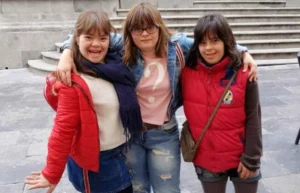
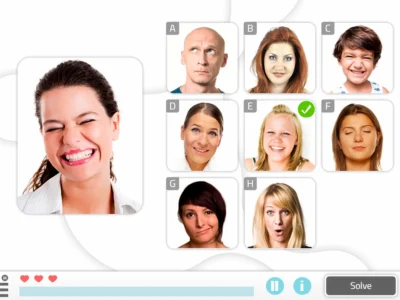
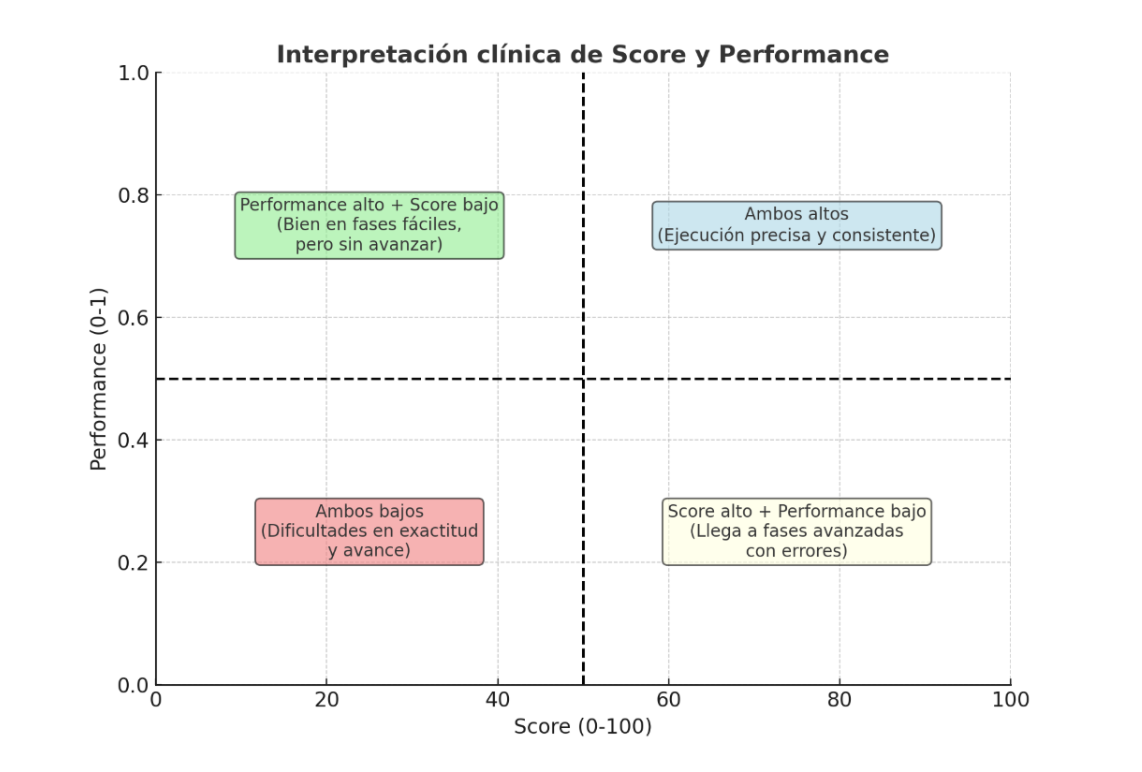

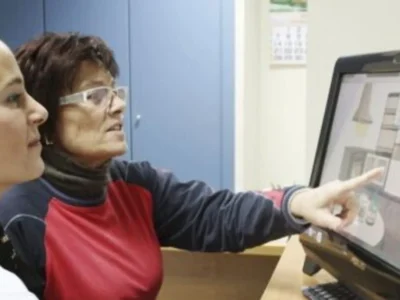
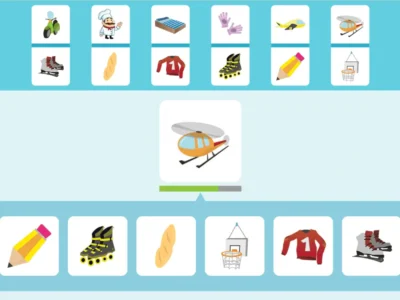
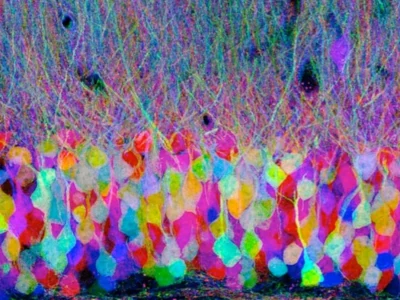
 Activities for people with Down syndrome
Activities for people with Down syndrome
Leave a Reply